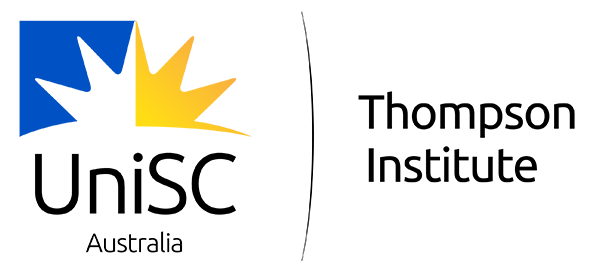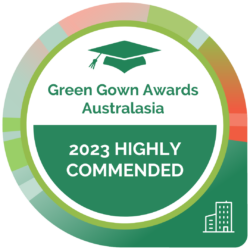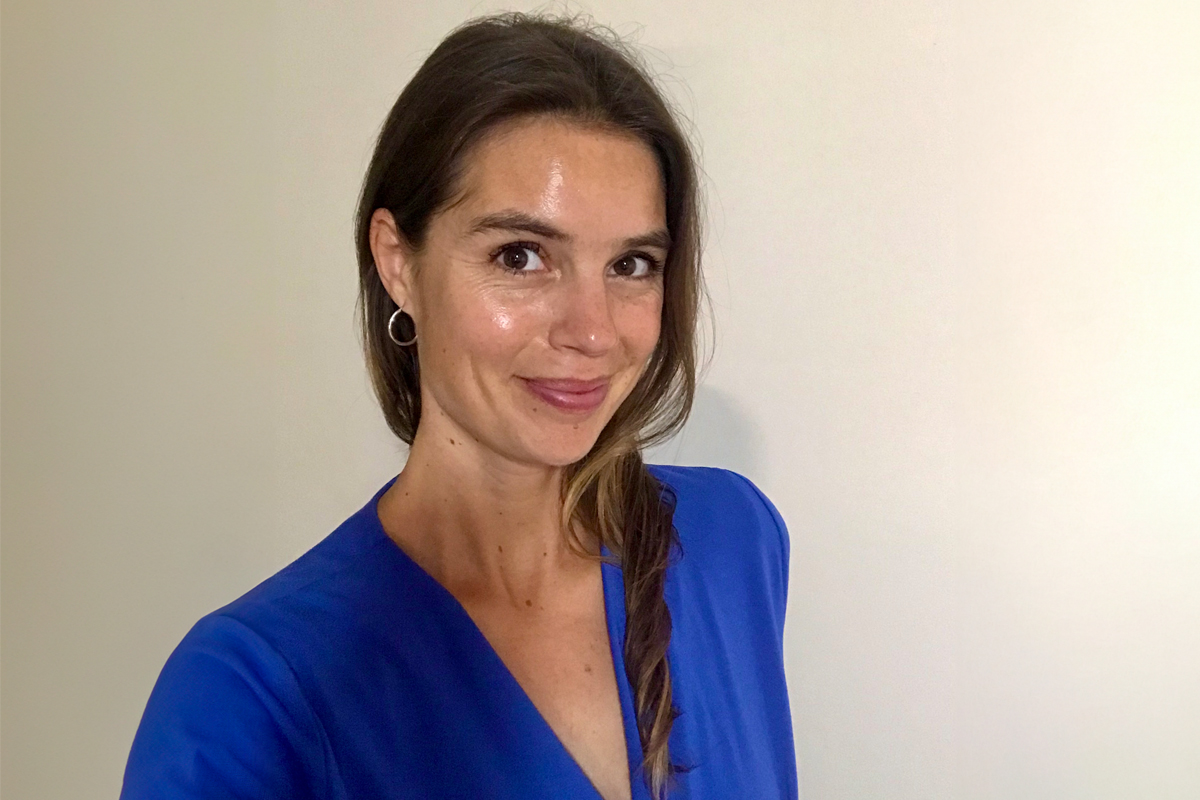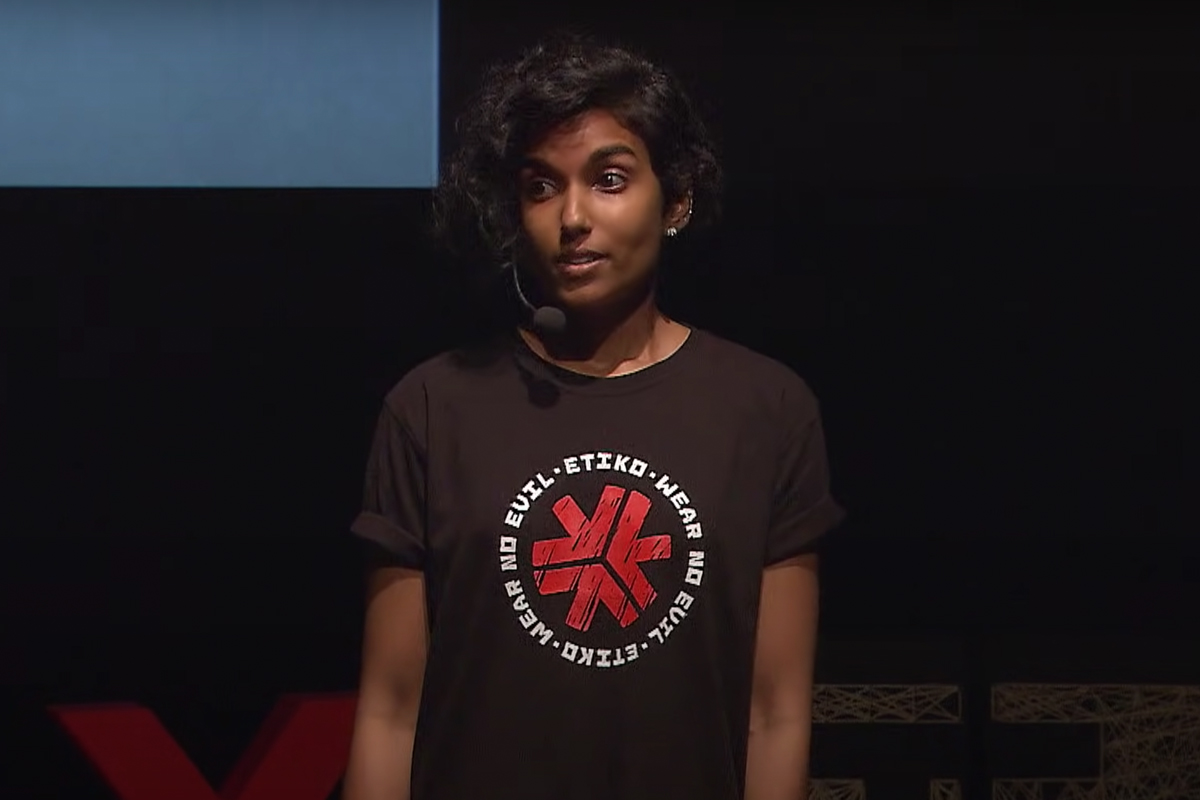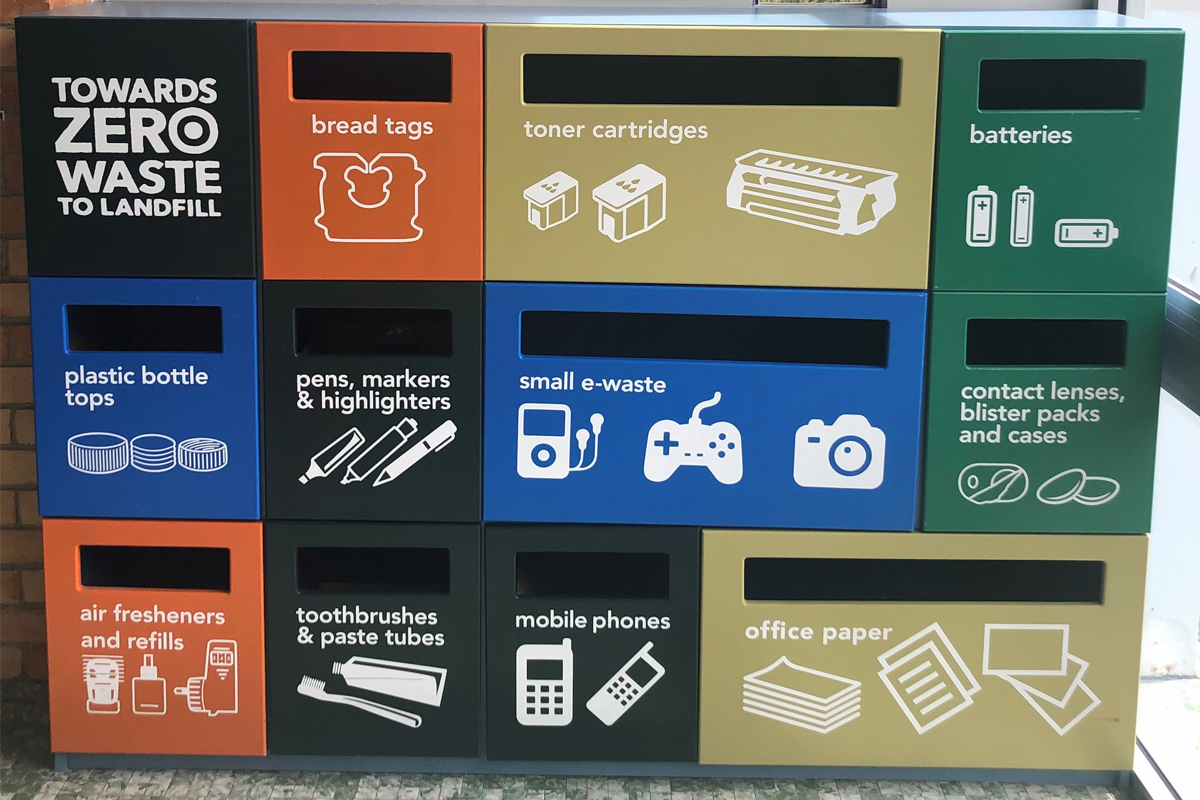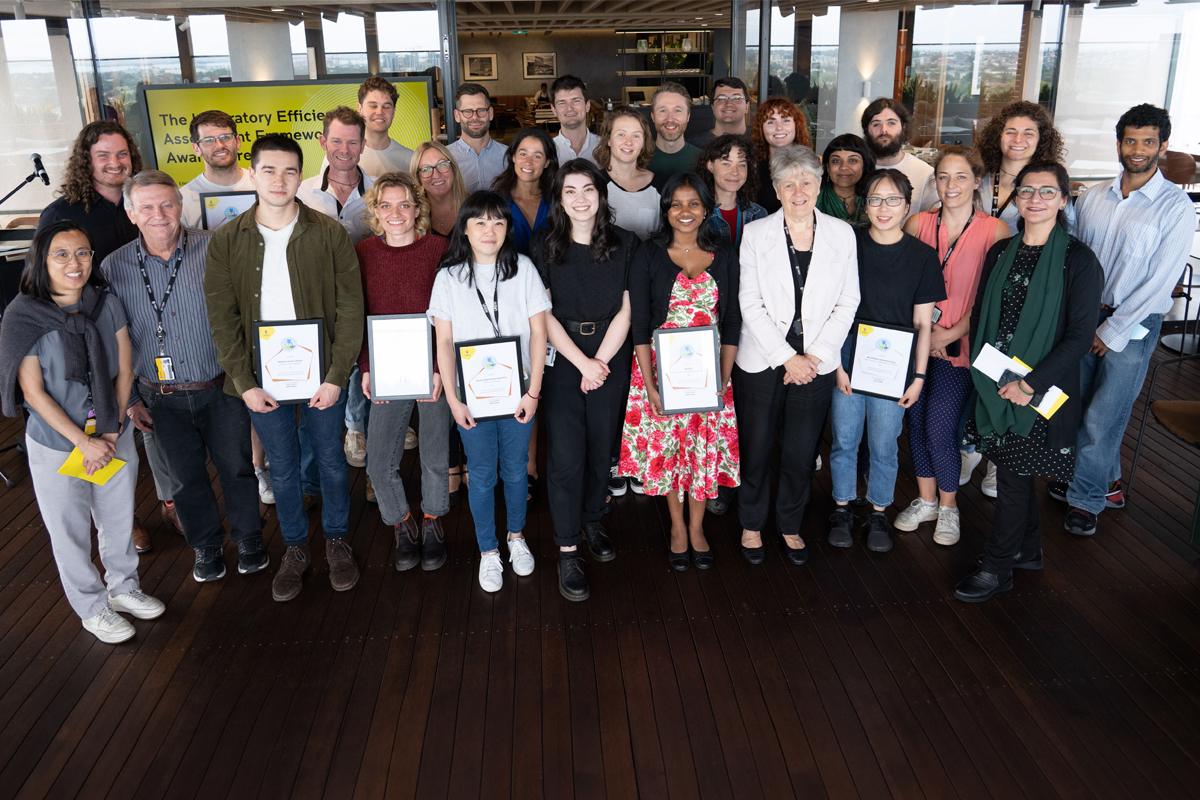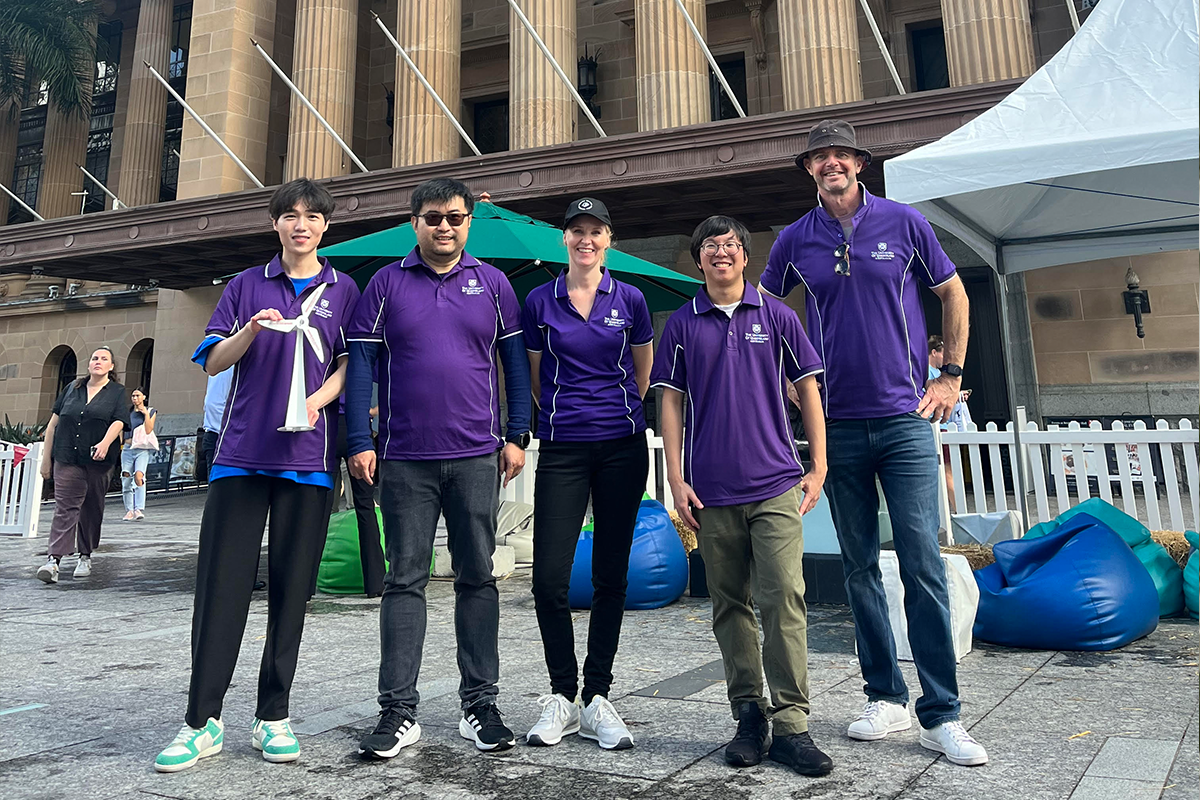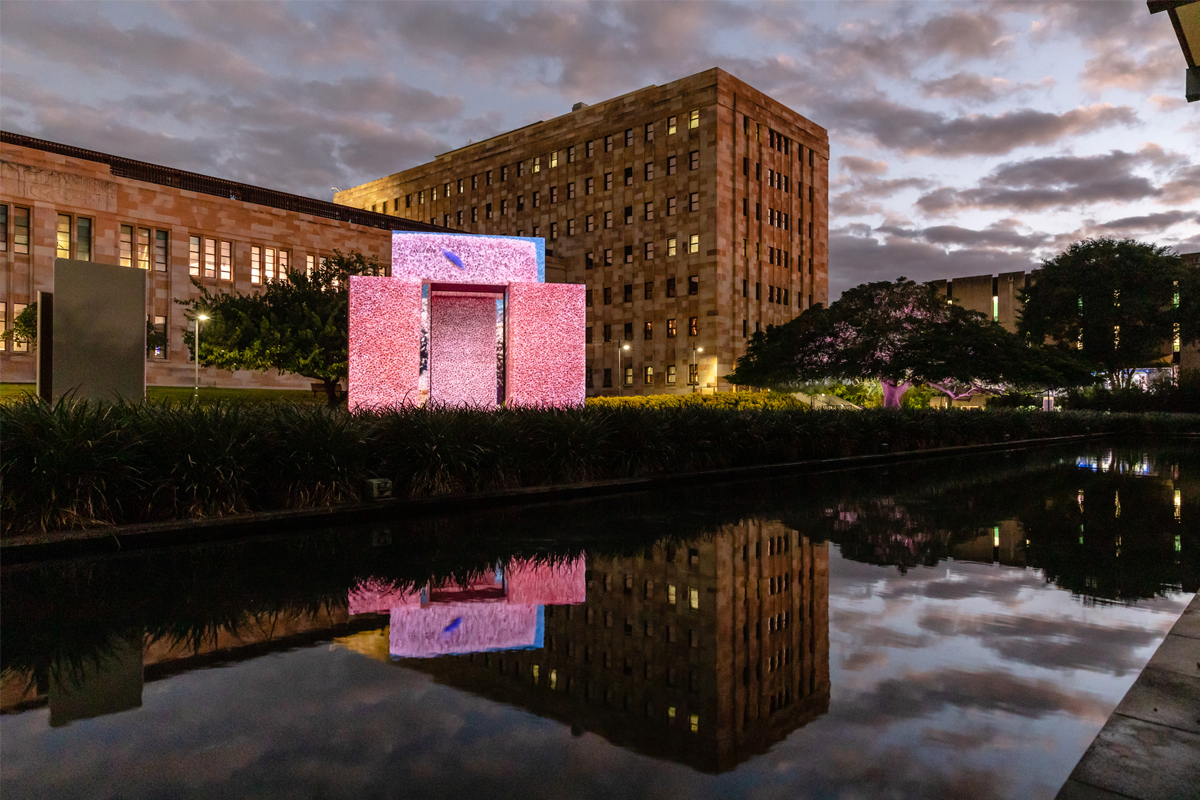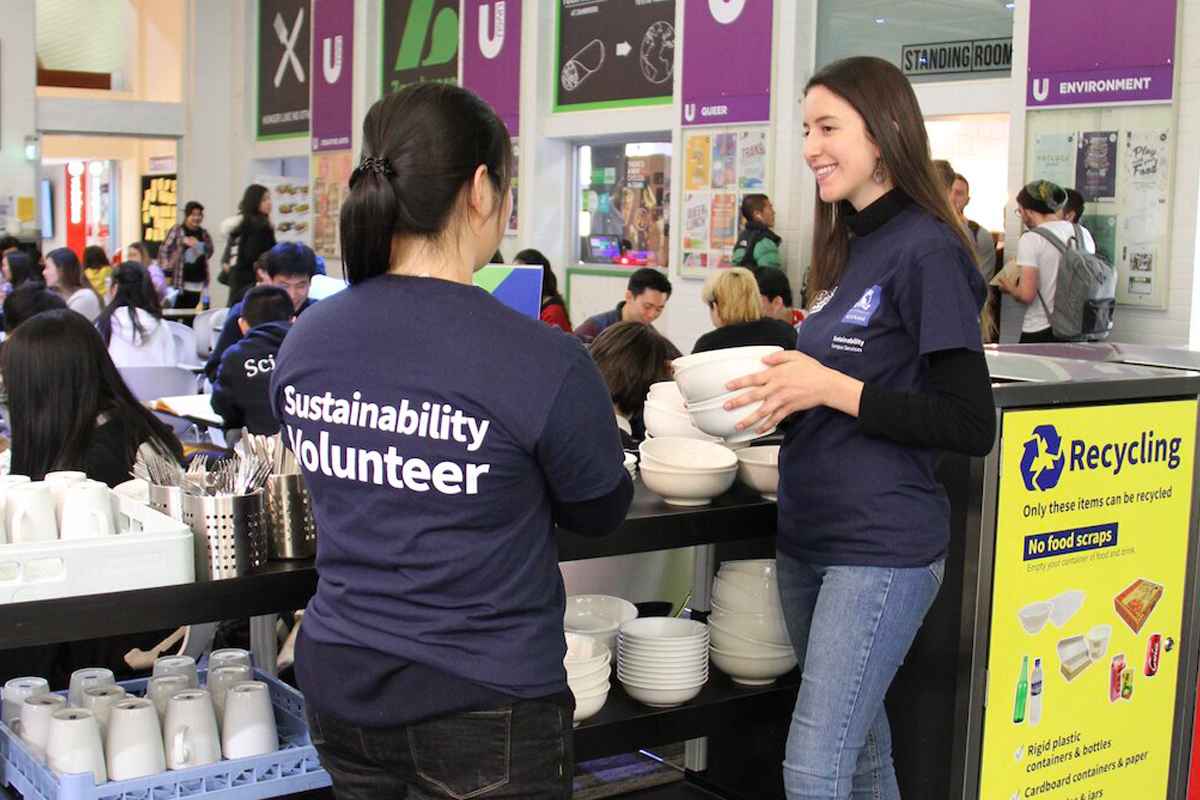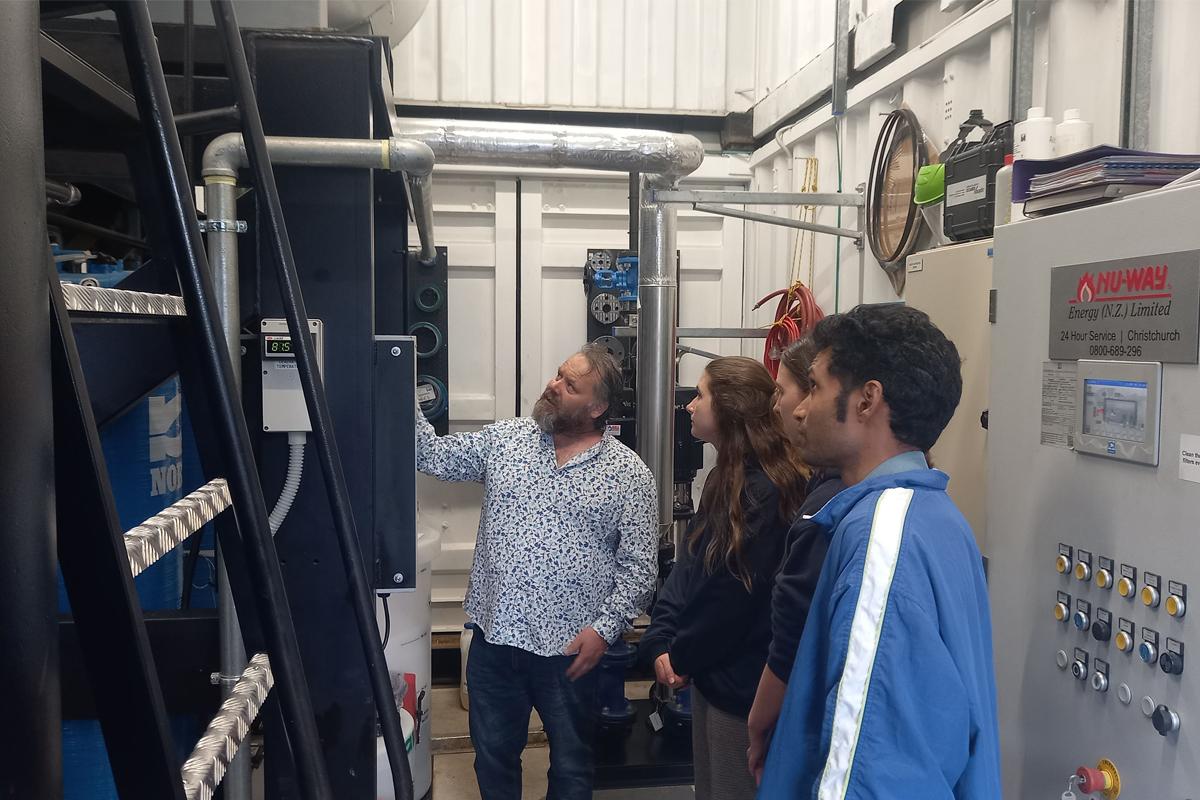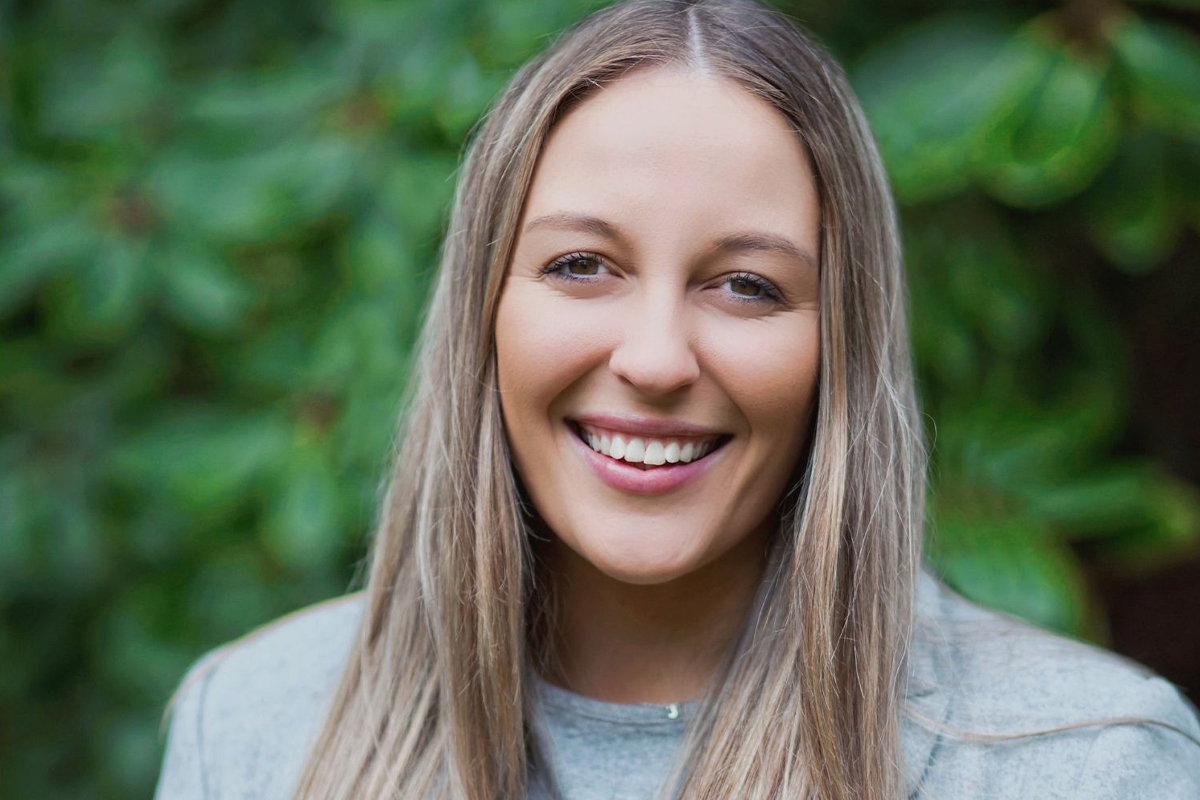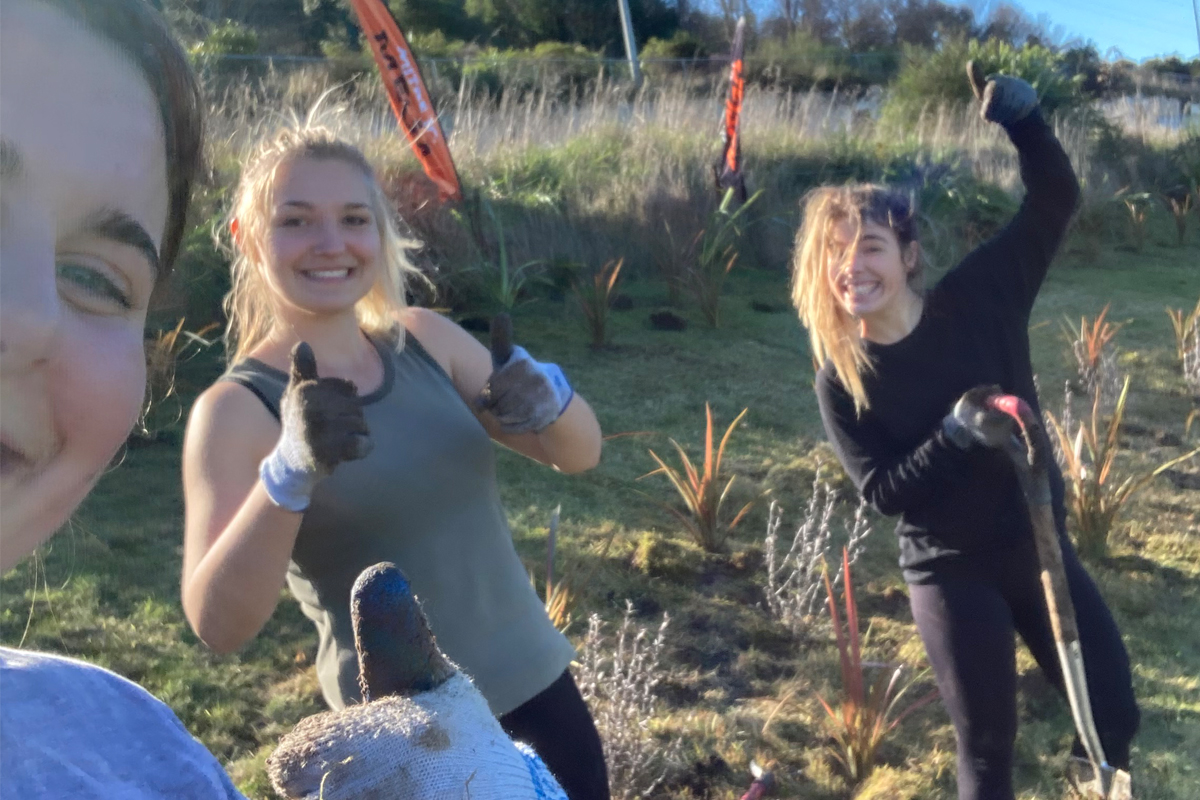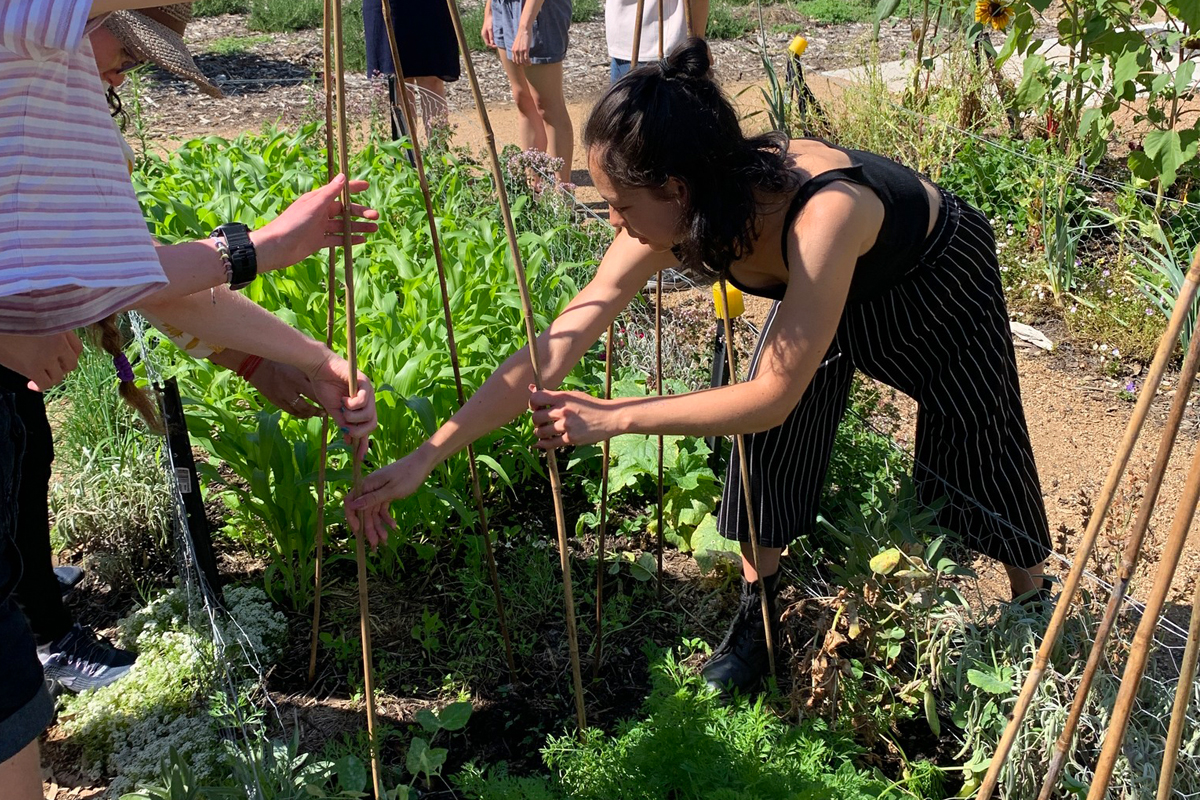Creating Impact/Winners category
The Alliance for Suicide Prevention was established by the University of the Sunshine Coast’s (UniSC) Thompson Institute in 2019 as a strategic framework to address the Sunshine Coast region’s alarming suicide rate, which was 9.1% higher than the national average. The model was adapted from the European Alliance Against Depression, an evidence-based program targeting depressive disorders and suicidal behaviour that resulted in a significant decline in suicides in parts of Germany. UniSC is the first to adapt this European model to an Australian context, with further adaptations to ensure cultural capability and relevance for First Nations People. The purpose of the Alliance is to:
- Reduce the number of suicide attempts and completions;
- Provide evidence-based support for the improvement of mental health education and awareness; and
- Become a nationally recognised model for the prevention of suicide in Australia.
To achieve our purpose and objectives, the Alliance offers an ongoing program of suicide prevention activities, through a scalable and replicable model, with plans to expand beyond the Sunshine Coast over coming years. The Alliance team will work with regional partners to build relationships that embed the model as a foundational structure within the community, promoting a shared sense of responsibility to reduce suicide. In 2021, the Alliance team won the award for Community Engagement at the 2021 Engagement Australia Excellence Awards, which recognises “far-reaching impact and innovation” by universities and their research.

Environmental and social benefits
The Alliance has generated important social and economic benefits through impactful community engagement, including:
- 165 regional organisations have joined as members, representing almost 30,692 employees, with an estimated potential reach of 286,000* (calculated using the number of Alliance partners, training participants, employees at Alliance member organisations, and their customer base. This number projects the maximum reach of the Alliance programs).
- Over 3400 community members have participated in suicide prevention and mental health training.*
- Over 22,000 people have benefitted from Alliance activities (based on increased knowledge and access to resources).*
- Enhanced public awareness of the prevalence and impacts of suicide in men aged 40 to 60 through projects such as current photographic exhibition, “Portraits of Mankind” (https://www.thealliance.org.au/get-invloved/portraits-of-mankind/).
- Launched ‘iHelp’, a community co-designed digital tool that identifies and actions pathways to help, tailored to users’ circumstances, demographics and location. TI partnered with award-winning social enterprise My Community Directory, to ensure information is kept up-to-date, crucial for users who may be in crisis.
- Clinical trial on chronic suicidality providing a rapid-acting treatment option that resulted in 69% of participants achieving a clinical improvement within the first 6 weeks (https://pubmed.ncbi.nlm.nih.gov/33542187/)
- The Alliance has built its reputation to be a trusted source, which has encouraged agencies such as Queensland Police to work with us to use real time data of local suicides to help inform a more impactful response to addressing the precursors to suicide.
* ROOY Social Impact Modelling: https://www.thealliance.org.au/our-impact/
Leadership and engagement
Our Alliance team are connected and represented at many board table committees and panels that work on regional challenges including homelessness round tables, youth mental health consortiums, healthy ageing and dementia committees, diversity and inclusion committees, and Sustainable Development Goals working groups – just to name a few. We also host the local Public Health Network’s Suicide Prevention Working Group here at the Thompson Institute. This provides us with first-hand information and opportunities to ensure our priorities are set in alignment with our community’s and partners’ needs.
Our engagement model is particularly distinctive, encouraging strong partnerships centred on the Head, Heart, Hand model:
- Head: Connecting on local issues and the opportunity to participate in an innovative response to a complex social issue.
- Heart: Connecting with honesty and authenticity, focused on aligning the program with the partners’ ability to make change.
- Hand: Providing tangible tools through which partners could contribute to the overall mission, through training and resources, with opportunities for input and collaboration.
Further to this approach, we have built trust and respect with Local, State and Federal Government agencies, national industry representatives, and most importantly our local community members. The Alliance has built its trusted reputation through our core leadership principles:
- Genuine communication: Vital to gain trust, align efforts in the pursuit of goals, and inspire positive change, all communications are clear and transparent. Events were facilitated (networking/Q&A panels) to share the mission and communicate how people can be involved.
- Understanding regional issues: Tailored regional suicide prevention responses were informed through our extensive research into the causes and treatment of suicide and an in-depth understanding of regional issues garnered through community focus groups.
- Leaders and changemakers: Regional leaders with the best voice to influence change were identified and invited to be involved, with the first approached those who were established contacts with a large staff, whose involvement would generate immediate action and encourage others to be involved.
- Ensuring alignment: The program’s mission and values were aligned to the local leaders’ mission to ensure it represented their vision for their community and supported their plan to achieve success.
- Action: Monthly suicide prevention training commenced, inviting representatives of potential partners to experience the training first hand.
The implementation of this model alongside our core leadership practice ensures we are addressing and supporting what is relevant to our community and our surrounding neighbours whilst influencing change by promoting and advocating for the actions needed to reduce suicide.
Significance to the sector
The Alliance project is unique in many ways including:
- UniSC was the first to adapt the European Alliance Against Depression model to an Australian context to prevent suicides, with further adaptations to suit the unique needs of First Nations People in our region.
- It is a university-led program that has a high level of community engagement and partnerships with small, medium and large organisations (165) who would not otherwise have ongoing contact with the university. In two cases, organisations have taken our PdD students to measure the impact of their mental health and suicide prevention activities.
- It is action-orientated with strong participation from industry that includes MOU arrangements with our university sector.
Wider societal impact
The estimated cost of mental illness and suicide to the Australian economy is about $220 billion each year, with a further $151 billion from diminished health and reduced life expectancy. The 2021 Census found that mental health conditions affect 2.2 million Australians, making it the top long-term health disorder in Australia, ahead of arthritis and asthma. It is clear that there can be no health or sustainable development without a focus on mental health.
Learner/Graduate employer impact
The Alliance’s host organisation, UniSC’s Thompson Institute, offers two postgraduate programs in Mental Health and Neuroscience. Both the graduate certificate and graduate diploma include the course Understanding and Preventing Suicide. The Alliance team has worked with the educators of these programs, to ensure graduates learn about suicide prevention engagement and community training activities occurring internationally and hear directly from the Alliance team about the impacts of its work on the Sunshine Coast. The course is undertaken by people in a wide range of professions including teachers, allied health professionals, and first responders, many of whom are considered suicide prevention ‘gatekeepers’ within their respective communities. As our university continues to educate the health workforce, the legacy benefits to graduates and their employers stem from an enhanced understanding of gatekeeper roles, at both the individual and organisational level.
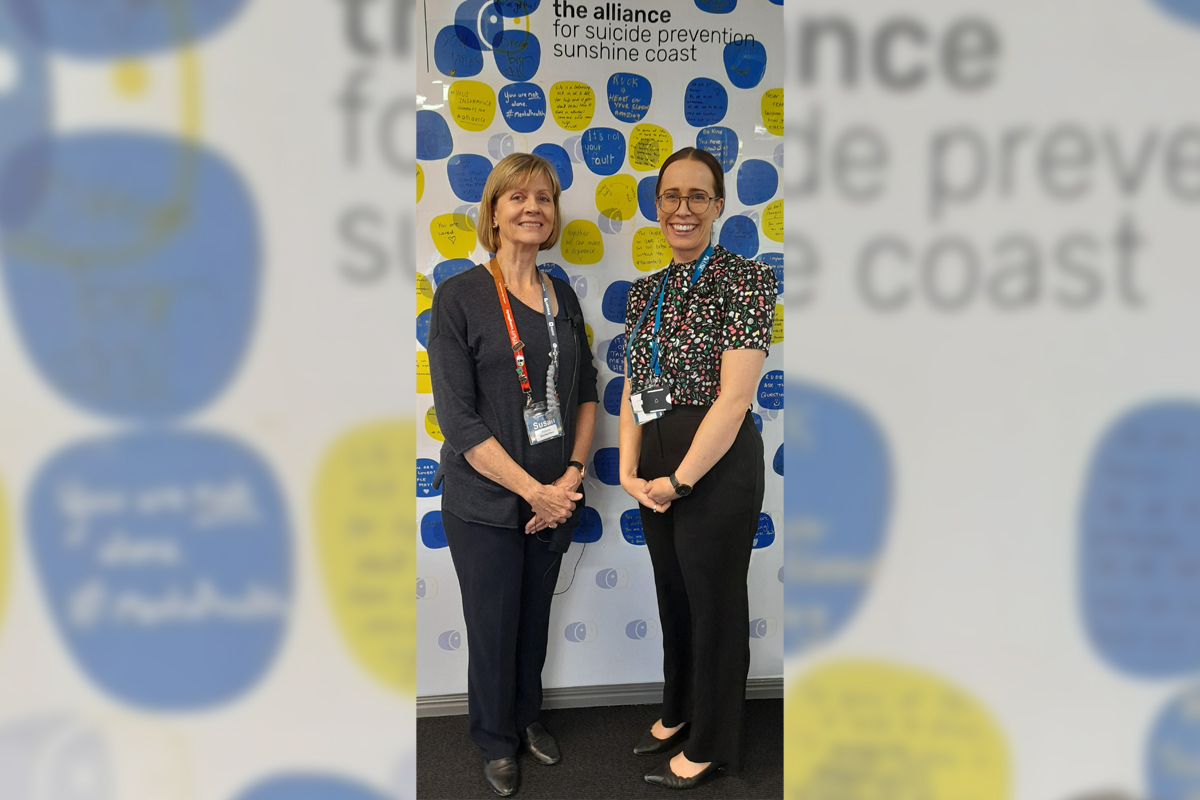
Top 3 learnings
Category finalists
Climate Action/Winners
Climate Action/Winners
Benefitting Society/Winners
Benefitting Society/Winners
Sustainability Champion – Student/Winners
Sustainability Champion – Student/Winners
Creating Impact/Winners
Creating Impact/Winners
Sustainability Champion – Student/Winners
Sustainability Champion – Student/Winners
Leading the Circular Economy/Winners
Leading the Circular Economy/Winners
Creating Impact/Winners
Creating Impact/Winners
Diversity, Equity & Inclusion in Sustainability/Winners
Diversity, Equity & Inclusion in Sustainability/Winners
Next Generation Learning & Skills/Winners
Next Generation Learning & Skills/Winners
Creating Impact
Creating Impact
Sustainability Institution of the Year/Winners
Sustainability Institution of the Year/Winners
Leading the Circular Economy/Winners
Leading the Circular Economy/Winners
Next Generation Learning & Skills/Winners
Next Generation Learning & Skills/Winners
Sustainability Champion – Staff/Winners
Sustainability Champion – Staff/Winners
Sustainability Champion – Student/Winners
Sustainability Champion – Student/Winners
Next Generation Learning & Skills/Winners
Next Generation Learning & Skills/Winners
Sustainability Champion – Staff/Winners
Sustainability Champion – Staff/Winners
Creating Impact
Creating Impact
Sustainability Champion – Staff/Winners
Sustainability Champion – Staff/Winners
Student Engagement/Winners
Student Engagement/Winners
Past winners
Benefitting Society/Winners
Benefitting Society/Winners
Diversity, Equity & Inclusion in Sustainability/Winners
Diversity, Equity & Inclusion in Sustainability/Winners
Climate Action/Winners
Climate Action/Winners
Sustainability Institution of the Year/Winners
Sustainability Institution of the Year/Winners
Creating Impact/Winners
Creating Impact/Winners
Creating Impact/Winners
Creating Impact/Winners
Top 3 learnings
Creating Impact/Winners category
The Alliance for Suicide Prevention was established by the University of the Sunshine Coast’s (UniSC) Thompson Institute in 2019 as a strategic framework to address the Sunshine Coast region’s alarming suicide rate, which was 9.1% higher than the national average. The model was adapted from the European Alliance Against Depression, an evidence-based program targeting depressive disorders and suicidal behaviour that resulted in a significant decline in suicides in parts of Germany. UniSC is the first to adapt this European model to an Australian context, with further adaptations to ensure cultural capability and relevance for First Nations People. The purpose of the Alliance is to:
- Reduce the number of suicide attempts and completions;
- Provide evidence-based support for the improvement of mental health education and awareness; and
- Become a nationally recognised model for the prevention of suicide in Australia.
To achieve our purpose and objectives, the Alliance offers an ongoing program of suicide prevention activities, through a scalable and replicable model, with plans to expand beyond the Sunshine Coast over coming years. The Alliance team will work with regional partners to build relationships that embed the model as a foundational structure within the community, promoting a shared sense of responsibility to reduce suicide. In 2021, the Alliance team won the award for Community Engagement at the 2021 Engagement Australia Excellence Awards, which recognises “far-reaching impact and innovation” by universities and their research.

Environmental and social benefits
The Alliance has generated important social and economic benefits through impactful community engagement, including:
- 165 regional organisations have joined as members, representing almost 30,692 employees, with an estimated potential reach of 286,000* (calculated using the number of Alliance partners, training participants, employees at Alliance member organisations, and their customer base. This number projects the maximum reach of the Alliance programs).
- Over 3400 community members have participated in suicide prevention and mental health training.*
- Over 22,000 people have benefitted from Alliance activities (based on increased knowledge and access to resources).*
- Enhanced public awareness of the prevalence and impacts of suicide in men aged 40 to 60 through projects such as current photographic exhibition, “Portraits of Mankind” (https://www.thealliance.org.au/get-invloved/portraits-of-mankind/).
- Launched ‘iHelp’, a community co-designed digital tool that identifies and actions pathways to help, tailored to users’ circumstances, demographics and location. TI partnered with award-winning social enterprise My Community Directory, to ensure information is kept up-to-date, crucial for users who may be in crisis.
- Clinical trial on chronic suicidality providing a rapid-acting treatment option that resulted in 69% of participants achieving a clinical improvement within the first 6 weeks (https://pubmed.ncbi.nlm.nih.gov/33542187/)
- The Alliance has built its reputation to be a trusted source, which has encouraged agencies such as Queensland Police to work with us to use real time data of local suicides to help inform a more impactful response to addressing the precursors to suicide.
* ROOY Social Impact Modelling: https://www.thealliance.org.au/our-impact/
Leadership and engagement
Our Alliance team are connected and represented at many board table committees and panels that work on regional challenges including homelessness round tables, youth mental health consortiums, healthy ageing and dementia committees, diversity and inclusion committees, and Sustainable Development Goals working groups – just to name a few. We also host the local Public Health Network’s Suicide Prevention Working Group here at the Thompson Institute. This provides us with first-hand information and opportunities to ensure our priorities are set in alignment with our community’s and partners’ needs.
Our engagement model is particularly distinctive, encouraging strong partnerships centred on the Head, Heart, Hand model:
- Head: Connecting on local issues and the opportunity to participate in an innovative response to a complex social issue.
- Heart: Connecting with honesty and authenticity, focused on aligning the program with the partners’ ability to make change.
- Hand: Providing tangible tools through which partners could contribute to the overall mission, through training and resources, with opportunities for input and collaboration.
Further to this approach, we have built trust and respect with Local, State and Federal Government agencies, national industry representatives, and most importantly our local community members. The Alliance has built its trusted reputation through our core leadership principles:
- Genuine communication: Vital to gain trust, align efforts in the pursuit of goals, and inspire positive change, all communications are clear and transparent. Events were facilitated (networking/Q&A panels) to share the mission and communicate how people can be involved.
- Understanding regional issues: Tailored regional suicide prevention responses were informed through our extensive research into the causes and treatment of suicide and an in-depth understanding of regional issues garnered through community focus groups.
- Leaders and changemakers: Regional leaders with the best voice to influence change were identified and invited to be involved, with the first approached those who were established contacts with a large staff, whose involvement would generate immediate action and encourage others to be involved.
- Ensuring alignment: The program’s mission and values were aligned to the local leaders’ mission to ensure it represented their vision for their community and supported their plan to achieve success.
- Action: Monthly suicide prevention training commenced, inviting representatives of potential partners to experience the training first hand.
The implementation of this model alongside our core leadership practice ensures we are addressing and supporting what is relevant to our community and our surrounding neighbours whilst influencing change by promoting and advocating for the actions needed to reduce suicide.
Significance to the sector
The Alliance project is unique in many ways including:
- UniSC was the first to adapt the European Alliance Against Depression model to an Australian context to prevent suicides, with further adaptations to suit the unique needs of First Nations People in our region.
- It is a university-led program that has a high level of community engagement and partnerships with small, medium and large organisations (165) who would not otherwise have ongoing contact with the university. In two cases, organisations have taken our PdD students to measure the impact of their mental health and suicide prevention activities.
- It is action-orientated with strong participation from industry that includes MOU arrangements with our university sector.
Wider societal impact
The estimated cost of mental illness and suicide to the Australian economy is about $220 billion each year, with a further $151 billion from diminished health and reduced life expectancy. The 2021 Census found that mental health conditions affect 2.2 million Australians, making it the top long-term health disorder in Australia, ahead of arthritis and asthma. It is clear that there can be no health or sustainable development without a focus on mental health.
Learner/Graduate employer impact
The Alliance’s host organisation, UniSC’s Thompson Institute, offers two postgraduate programs in Mental Health and Neuroscience. Both the graduate certificate and graduate diploma include the course Understanding and Preventing Suicide. The Alliance team has worked with the educators of these programs, to ensure graduates learn about suicide prevention engagement and community training activities occurring internationally and hear directly from the Alliance team about the impacts of its work on the Sunshine Coast. The course is undertaken by people in a wide range of professions including teachers, allied health professionals, and first responders, many of whom are considered suicide prevention ‘gatekeepers’ within their respective communities. As our university continues to educate the health workforce, the legacy benefits to graduates and their employers stem from an enhanced understanding of gatekeeper roles, at both the individual and organisational level.

Related finalists
Climate Action/Winners
Climate Action/Winners
Benefitting Society/Winners
Benefitting Society/Winners
Sustainability Champion – Student/Winners
Sustainability Champion – Student/Winners
Creating Impact/Winners
Creating Impact/Winners
Sustainability Champion – Student/Winners
Sustainability Champion – Student/Winners
Leading the Circular Economy/Winners
Leading the Circular Economy/Winners
Creating Impact/Winners
Creating Impact/Winners
Diversity, Equity & Inclusion in Sustainability/Winners
Diversity, Equity & Inclusion in Sustainability/Winners
Next Generation Learning & Skills/Winners
Next Generation Learning & Skills/Winners
Creating Impact
Creating Impact
Sustainability Institution of the Year/Winners
Sustainability Institution of the Year/Winners
Leading the Circular Economy/Winners
Leading the Circular Economy/Winners
Next Generation Learning & Skills/Winners
Next Generation Learning & Skills/Winners
Sustainability Champion – Staff/Winners
Sustainability Champion – Staff/Winners
Sustainability Champion – Student/Winners
Sustainability Champion – Student/Winners
Next Generation Learning & Skills/Winners
Next Generation Learning & Skills/Winners
Sustainability Champion – Staff/Winners
Sustainability Champion – Staff/Winners
Creating Impact
Creating Impact
Sustainability Champion – Staff/Winners
Sustainability Champion – Staff/Winners
Student Engagement/Winners
Student Engagement/Winners
Other finalists
Climate Action

Driving Towards Tomorrow’s Campus with Vehicle-to-Grid EV Technology
As part of Flinders University’s drive to innovate and become a leader in climate action, the University launched its Vehicle-to-Grid (V2G) initiative. This involved installing and maintaining 20x V2G and smart chargers for its growing electric vehicle fleet. Leveraging 100% renewable energy generated by ENGIE’s Willogoleche Wind Farm and Flinders University’s solar power systems, this enables the storage of renewable energy in EV batteries to be discharged on campus during peak demand periods. Hence, allows for these EV fleets to operate as a Virtual Power Plant (VPP) to deliver peak demand management and optimization of behind-the-meter generation.
Overall, this initiative demonstrates the reliability and scalability of bi-directional and uni-directional smart-charging systems for EVs in reducing GHG emissions while facilitating teaching, research, and innovation opportunities. Moreover, it exemplifies a sustainable and innovative solution to scale energy storage technology and increase renewables.
Sustainability Champion – Staff/Winners

Brandan Espe
Environmental Officer / Acting Grounds Supervisor
Brandan has brought over 50 federally listed Endangered species of plant into the James Cook University living collection, many of which have never been cultivated and are found in no other collection in the world.
Of these, over half have been sustainably wild collected, inclusive of field and clone data, so they can be used for ongoing conservation, research and teaching, the remaining being sourced from private and partner organisations through favours of service or trades.
He personally funded the project from 2019-2022, until funding was awarded for the program due to its success, with the program now being engrained into the Universities landscapes for ongoing management should he leave JCU, creating a threatened species legacy collection.
The program has now expanded beyond this, with an additional 48 species now funded for further addition, some of which are only known from less than 5 sightings in history.
Student Engagement

Sustainability Leaders creating real impact!
La Trobe created a unique Sustainability Leaders volunteering program to increase engagement with students on campus and empower them to act against waste and promote sustainability. It included the following initiatives:
- Promoting the reusable crockery implementation,
- Increasing knowledge action of other students on campus to diversion comingled recycling and organic waste from landfill.
- Focus on waste audits and data,
- Improved signage through new waste posters for students living on campus.
- Collaboration with Cirka (our cleaning and waste partner) to create a waste wall and;
- Learning all things sustainability (net zero, biodiversity, waste, reusables, engagement)
These initiatives yielded significant results and with a reduction in waste contamination by almost 40% at the residential buildings and engagement with over 80 groups of people for the Reusable Revolution.
Creating Impact

Where knowledge meets habits: Empowering students for a sustainable tomorrow
Our online Sustainability Challenges offer participants an engaging, self-paced learning experience centered around a specific United Nations Sustainable Development Goal (UNSDG). Requiring minimal resourcing and at zero-cost to participants, we’ve created replicable, compact, scalable, and impactful learning opportunities that result in real impact.
The Challenges follow a structured process that moves participants from knowledge gain to simple action to celebration, to establish small but mighty habits relating to waste and carbon emissions. This approach recognises that knowledge alone is often insufficient to drive behaviour change, and that ease of action and celebration are crucial components in creating sustainable habits.
Sustainability Champion – Staff/Winners

Catherine (CeeJay) Donovan
Veterinary nurse – Anaesthesia
From establishing the Massey Vet School Green Team to leading impactful initiatives, my commitment to environmental sustainability has been making waves. With the help of my team, I have accomplished numerous small, yet meaningful actions, including integrating a sustainability lecture for final year vet students and implementing battery recycling alongside rechargeable battery use. Our larger projects encompass the introduction of green waste and soft plastics recycling bins, an energy audit resulting in power-saving measures, and playing a part in a successful rubbish audit. I spearheaded the ‘6 in 6’ campaign, empowering individuals with six simple steps for workplace sustainability. Through the SustainaVet social media pages I help to educate and inspire peers nationwide. As the Massey School of Veterinary Science sustainability champion, I had the privilege of speaking at the annual veterinary conference on sustainability in clinical practice. Currently I’m conducting pioneering research on responsible cat waste disposal. Together, we’re forging a greener future, one initiative at a time.
Sustainability Champion – Student

Louis Walmsley
SDG Coordinator Monash Association of Sustainability, Office Bearer Monash Student Association’s Environmental and Social Justice Department, Masters of Environment and Sustainability Student
Louis is an exceptional student sustainability leader at Monash University. His passion and dedication to sustainability have made a significant impact on the community. Louis’s values revolve around sustainability, which is evident upon meeting him. He actively participates in various sustainability groups, demonstrating his commitment to creating a more environmentally conscious society.
One of Louis’s notable involvements is with Precious Plastic Monash, where he organizes remarkable events and fosters collaboration among like-minded individuals, student groups, and staff. His contributions to the Monash Association of Sustainability have allowed him to conduct valuable research on plastic usage and climate action, resulting in positive changes within the university.
Through his work with the Monash Student Association, Louis has engaged hundreds of students in fun and interactive sustainability initiatives. He took the initiative to organize a sustainability food fair, which was one of the largest sustainability-related events held at Monash post-COVID. This accomplishment is a true testament to Louis’s hard work and creativity.
Louis is an outstanding student leader whose efforts in sustainability have had a lasting impact on Monash University and its community. His inspiring nature resonates with everyone who knows him.

